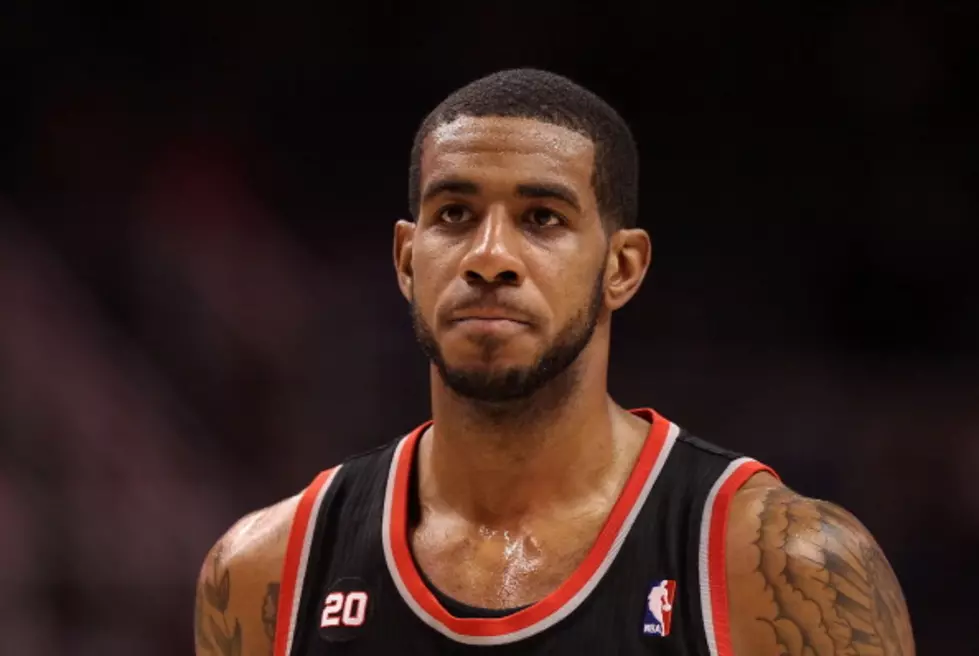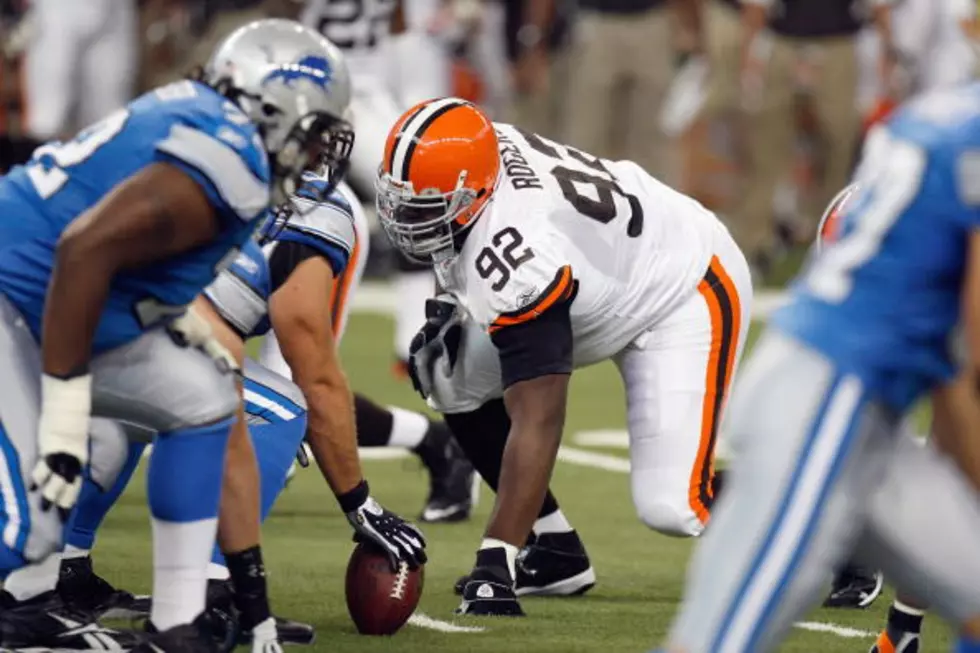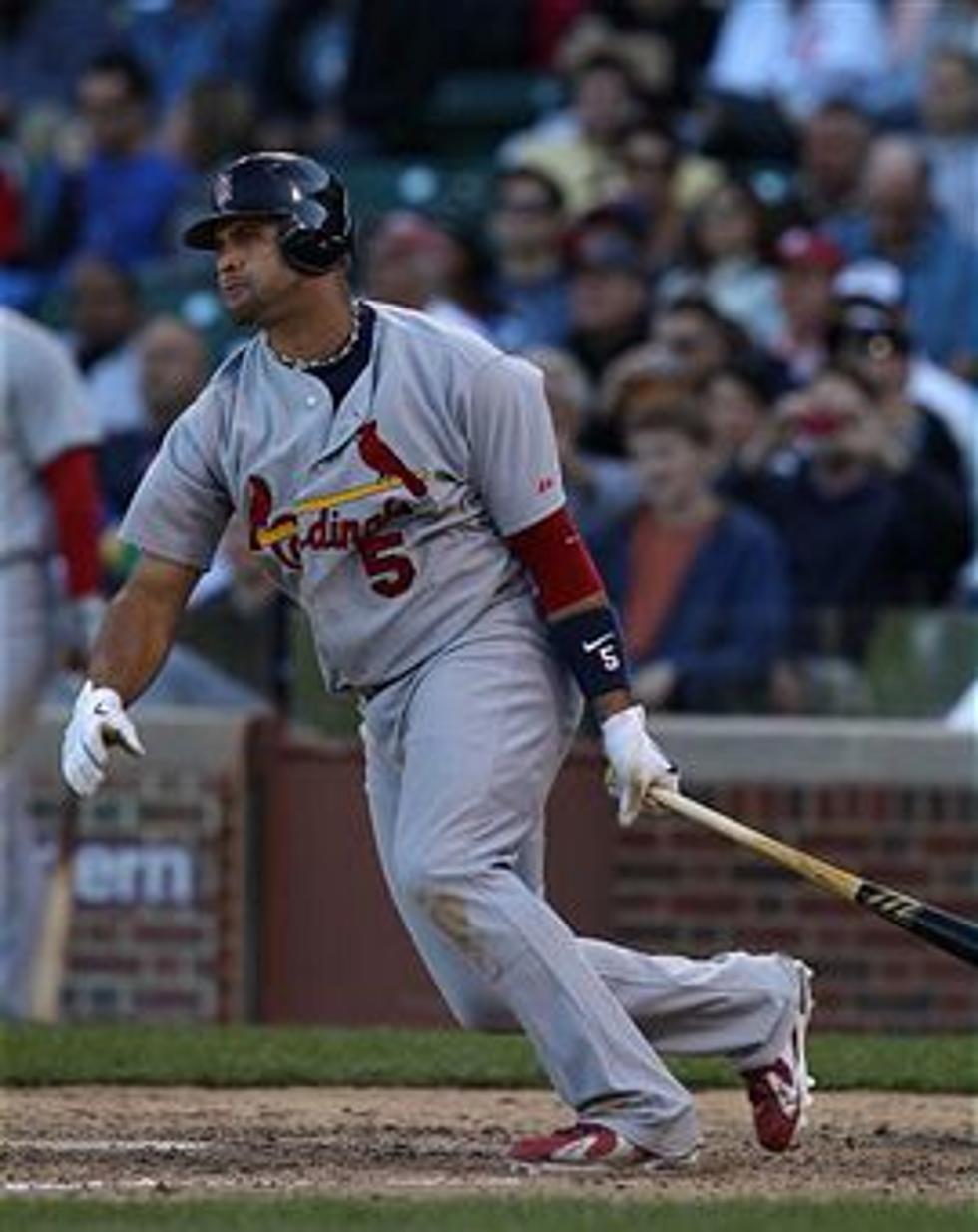
Coach’s Corner: With Michael Lotief
Louisiana's Ragin' Cajun softball program has been to an NCAA Regional, 20 times in the last 21 years. During that time, there have been a lot of great players, and individual performances. But, as UL co-head coach Michael Lotief talks about in this week's edition of "Coach's Corner", the program would not be where it currently is, if not for those that put the well-being of the team, first. Read "There Is No 'I' In Team", below.
Check in every week, for UL co-head coach Michael Lotief's "Coach's Corner", on espn1420.com.
THERE IS NO “I” IN TEAM
Have you ever wondered how a team develops chemistry? What is the process that takes an individual from only being concerned about their own self-interest to being totally immersed in the goals and tasks of the team. Is what makes one team better than another just athletic ability or is there more to it, i.e. chemistry”? Is it any different for a sports team than it is for a company in the business world? Is there an explanation or theory for why kids quit (or now the politically correct phrase is, “leave the team for personal reasons”).
When a kid decides to quit or “leave the team for personal reasons”, we as coaches ask questions of ourselves and reflect – we want to know what role we played or what could we have done differently. The relevant questions: are kids only quitting in athletics? How many kids are “dropping” classes on the academic side; for instance, if a professor had a class size of 30, is it normal that 5 students would end up dropping that class by mid-term? How about in the work place – how many workers leave their place of employment per year? Is there such a thing as “normal” attrition? Who is to blame? Or is it really somebody’s fault? Is it the professor’s fault that a kid drops the class? Is it the employer’s fault that any employee leaves for another opportunity? Is it the coach’s fault when a player decides to quit? Or is it just an individual’s choice; an individual making a personal decision; a value judgment about what is best for me?
Has quitting become more acceptable in society? When I told my dad I wanted to quit a team in high school, he said “Son, you got 3 choices – (1) you can go meet with the Coach and try to FIX IT, or (2) you can whine and make excuses and blame the coach, or (3) you can QUIT – and in this household, we don’t whine and we don’t quit, so you got ONE OPTION -- GO FIX IT NOW”. FIXING IT meant engaging in the process by thinking about the situation from the “TEAM’s perspective” rather than just seeing it from “my own eyes”. It meant initiating dialogue with my coach – confronting the issues first and seeing if there could be resolution or whether the differences were irreconciliable. But just quitting because I was not playing or because I did not feel like going to practice or because it was hard or because I got my feelings hurt was not acceptable. There were other, more important considerations that my dad pointed out to me: honoring my commitment (if you start something then you are going to finish), and being a good teammate (not leaving my friends in the middle of the season), and “playing the role” the coach deemed best for the team (versus ME). In recreational leagues, there are mandatory playing time requirements (i.e. in baseball/softball every kid must play two innings and have at least one at bat). In competitive athletics, you EARN your playing time; and often times, very talented players are relegated to ROLES that best suite the team.
After my high school season that year, the banquet was at my house, despite the fact that I only appeared/played about 2 minutes of TOTAL basketball out of 30 games; my dad grilled rib-eyes and toasted Coach “for all you did for my boy”. You see, even though the Coach did not put me in the line-up, the Coach made me run every sprint the fastest I could, he made me compete during 5 on 5 in practice, he required that I maintain my grades and have perfect practice and class attendance, he pushed me to do my best on and off the court, he taught us discipline and he preached excellence and giving our best every day. Life lessons can be learned through athletics without every scoring a point or getting a hit.
When law school got too tough and required too many hours of reading and no matter how hard I studied, it was still a struggle and I told my dad I wanted to quit – the wise old man said, “Son, keep at it; it’s not about instant pleasure or easy success; you can and will find a way; your hard work will pay off”. Well, my dad helped me paint my law office years later and bought me a beautiful antique desk for my office and accompanied me to court on occasion.
And, when I was diagnosed with throat cancer, my dad did NOT have to tell me to fight or not to quit – I knew what to do because those lessons had already been taught and learned and cherished.
Just because the days of working for the same company your entire life is not probable anymore, or just because an employer is not likely to be true to an employee til retirement or just because our favorite NFL or MLB player changes teams every 4 or 5 years or coaches jump from team to team based on who is the highest bidder, does not mean that there is still TRUE MEANING to the values of loyalty, commitment, perserverance and persistence.
I did some reading and research and talked to different “experts” and learned that there are PHASES OF GROUP DEVOLOPMENT AND DYNAMICS that are necessary and inevitable in order for the team to grow, to face up to challenges, to tackle problems, to find solutions, to plan and to deliver results. These phases are forming, storming, norming and performing.
In the FORMING stage: the individuals are getting to know one another; the individual behavior is driven by a desire to be accepted by the group; the individual is gathering information and impressions about each other. This is the comfortable stage, where the team agrees on goals and begins the process of tackling the task.
STORMING stage: team member’s confront each other’s ideas and perspectives which is necessary to the growth of the team; it can be contentious, unpleasant and even painful for those who are averse to conflict. The challenge is for the team members to resolve their differences and continue the process of working together to accomplish the task.
NORMING stage: there is one definable goal and a mutual plan to accomplish the task; leadership roles as well as complimentary roles are defined and understood and team members take the responsibiltiy and have the ambition to work for the success of the team’s goals even at the cost of relinquishing their own personal ambitions. TEAM 1st.
PERFORMING stage: high performing teams function as a unit (NO “I” in TEAM); they get the job done effectively; they are interdependent (US), motivated and understand their roles and tasks; the team is able to handle the decision-making process without constant supervision.
The COACH-PLAYER relationship is in large measure “autocratic”; the coach must require that things be done a certain way (discipline) and that the individuals work together (synergy), and a lot of times, the coach just tells the players what to do. This generation increasingly does NOT want to be told what to do. I know my 14 year old daughter doesn’t, and she doesn’t mind telling me, “Don’t tell me what to do”. Too many times in recreational ball, coaches do NOT fulfill their responsibilities of instilling discipline and requiring the individuals to work together as a unit. I have watched all too often coaches who forfeit the opportunities for the TEAM to be successful in order to make one individual happy. Most recreational teams are forever stuck in the FORMING stage (social activity only) and will never PERFORM because they do not invest the time, energy or resources to go through the tough phases that are required to have CHEMISTRY. Lastly, the coach-player relationship has been drastically compromised from the “good ole days” because now every player has an entourage and there are so many “other layers” involved (i.e. agents, personal trainers, parents, advisors, travel ball coaches, etc). Everybody is an “expert”; everybody wants to offer “their professional opinion”; and no doubt, everybody has true intentions, but most times the “outsiders” see it from the eyes of the player (ME). Instead of giving “good advice” like I got from my dad, all too often the advice is self-centered and based on making the easy decision that brings instant gratification. This is in direct conflict with the coach’s “professional obligation” to see it from the perspective of what is best for the TEAM (US).
In order to get our softball team effectively through the stages and to develop the strongest relationships possible and to get everybody on the same page or pulling in the same direction on the rope, we have team dinners and team building exercises where the discussion of ideas and perspectives are encouraged, and we also require that the team agree on a consensus. It is a balancing act. Every team has its own personalities. Every team struggles through the process of finding its own identity and voice and personality. Some teams have better chemistry than others. That’s why in 31 years of coaching, it has never been stale – each team is unique and each season is different and every year brings a new challenge.
My favorite memory of LOYALTY in the “ME” world of college sports is when Bill Frieder (head basketball coach at Michigan) told his boss, (athletic director at the time) Bo Schembecher, on the eve of the 1989 NCAA March Madness tournament, that an offer had been made for him to coach at Arizona State, and that he’d be taking the job as soon as he got done coaching the Wolverines. Schembechler blew a gasket. Bo fired Frieder, on the spot.
“A Michigan man will coach Michigan!” Bo famously declared. And in his eyes, Bill Frieder was NOT a Michigan man, once he’d decided to leave Michigan “for personal reasons”.
Our challenge this year is that when we walk on the softball field that we are all more concerned about the RAGIN CAJUNS than we are “I”!
GAME/PRACTICE NOTES: Opening weekend was awesome. Our team was energized by having “our fans” in the grandstand behind home plate AGAIN…..and the football team in the outfield. Our game management/athletic staff did a great job of hosting the tournament and creating a “fun” environement…. What did Gabby eat for breakfast? The 2 freshmen pitcher’s debuts are PERFECT in the circle (Christine Hamilton & Shelbee Rodgers)…..Softball and perfect are usually not the norm; it is a game of failure and adjustments; we are going to have to play better defense; there will always be errors but we need to get tougher on defense….. on the offensive side, for our line-up to work, everybody has to play their role and lock in every at bat; a line-up is about TEAM and chemistry and working together as a unit not just one individual getting “hot”….. we must stay healthy, Erikka sprained her ankle vs Prairie View & Cormier was cleated and got 12 stitches vs Arkansas; both were out against Sam Houston; we cannot endure the vast injuries from last season….see all the game recaps at www.ragincajuns.com …..Don’t get spoiled (although we would love nothing better than to spoil ya’ll), softball games are usually in the neighborhood of 3-2 not 14-1; good hitters usually go 3 for 9 not 7 for 10; pitchers usually throw 4 or 5 hitters not perfect games…. It is NOT one of our goals to go undefeated this season; our goals are not RESULT-oriented goals i.e. final scores, batting average, ERA, etc.; our expectations are to play hard and to compete day by day. We need your help. Home field advantage “shows up” and “makes a difference” when a team needs to come from behind or in the one run (baseball-softball) or one point (football-basketball) victories….Congrats to Coach Stef on her 500th win; I have been a part of “her staff” for all 11 years; the first two years I was the volunteer assistant; remember we had a newborn baby (Andrew) and after year 2 our assistant coach left; as a volunteer I could not recruit and Stef needed/wanted to be with the baby; Nelson Schexnayder (A.D. at the time) came up with the great idea of co-head coaches to satisfy the “nepotism law”; but in reality, she is the boss. 500 wins is a tribute to this program and all of the support of YOU …..Thanks to all of you who continue to love and support and pray for US…..our belated Valentine wish – you are “our heart”, you are the best “fans” in the country, we cherish being on the SAME team together, it is all about the RAGIN CAJUNS family, we love you!…. Now all of “OUR” FOCUS needs to be on preparing for the NEXT game. Bring a friend and come to Lamson Park this weekend! GEAUX CAJUNS!….Former player and assistant coach, Joy Webre, gave birth to a baby girl (Kennedy Hope) on Valentine’s day. Next week, there will be a new section to coach’s corner called “GOOD TIMES!”, where we look back to some of the fun memories of the “distant past” and recall a bunch of “has beens”!.
Reminder softball fans: listen to the games right here on ESPN1420 and visit the RAGIN CAJUNS SOFTBALL FAN PAGE on facebook at http://www.facebook.com/home.php#!/pages/Ragin-Cajuns-Softball-Fan-Page/141642419230558.









